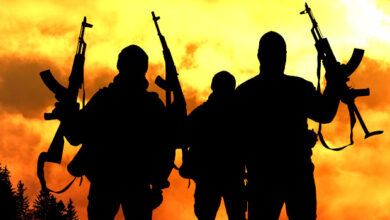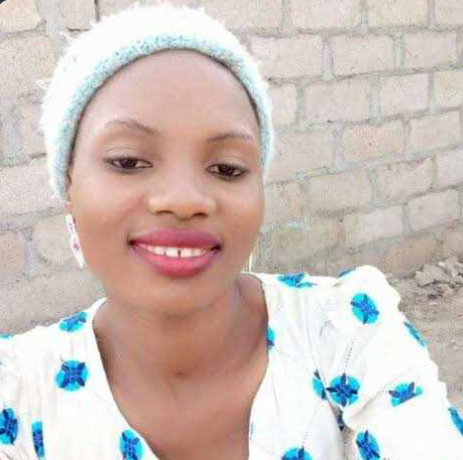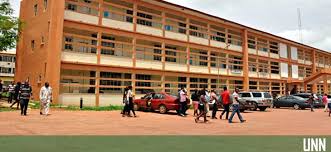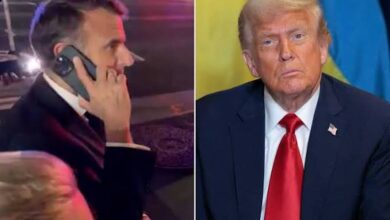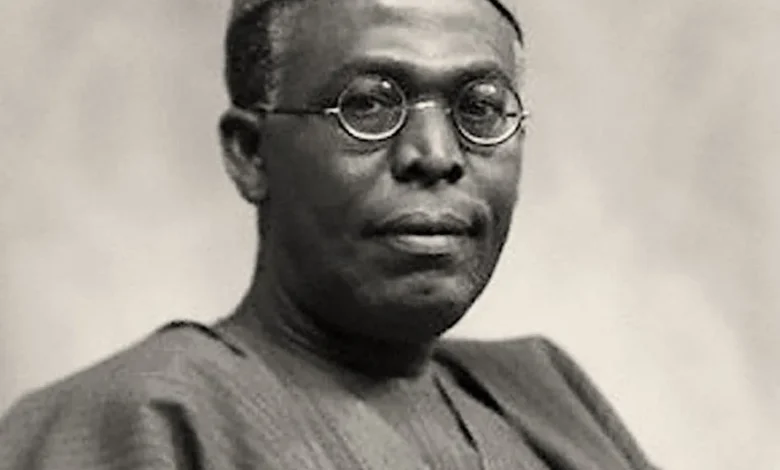
By Adewale Adeoye
An epic event passed two weeks ago without significant notice. It was as if a giant comet scurried through the sky without anyone showing interest, or an incubus beast running on a tarmac without any notice from the control tower.
In the bitter game for political power in Nigeria and the often vicious scramble for state capture in Africa’s largest democracy,the revelation came that former President Mohammadu Buhari was invited to contest the Presidential election for one major reason: to stop the O’odua Peoples Congress, (OPC), in a way, the euphemism Yoruba agitation for self-determination.
It has rekindled old wounds: That there are two major contending in Nigerian post-colonial history: Ethnicity and Religion, the most profound being ethnicity, tied to religion. These factors have dominated power and politics in Nigeria since 1960, and may shape the future. We have four major ethnic contenders in Nigeria: Fulani, Yoruba, Igbo and ethnic minorities. Of these four, three have fought to seize the trophy through violent means: The January 1996 coup saw the Igbo outcry, irrespective of the propaganda to cover the motive; the second was the counter coup of July 1966, led by the Fulani using a Northern minority, General Yakubu Gowon as a pun, the third attempts were by ethnic minorities; first the 1976 led by Col Bukar Dimka from Plateau and on April 22, 1990 by Major Gideon Orkar, a Tiv from Benue State. Only the coups planned by the Fulani or their rookies had ever succeeded. Both Orkar and Dimka have been demonised as villains, but the reality is that their mission was to resolved the power equation they felt was against ethnic minorities.
Few weeks ago, the prominent Northern politician from Yobe State, Buba Galadima brought the debate into the front burner when he made the most chilling, heart-throbbing revelation about Northern power game. He spoke about what motivated the North, a section of it, powerful but small, to look out for late Nigerian leader, Mohammadu Buhari to contest the Presidential elections, the last of which he won in 2015, was to promote Fulani interest in Ilorin and put an end to O’odua Peoples Congress, (OPC).
It indicated that the race ran by Buhari was predetermined. The truth is that with the advantage of power inheritance form the British, the Fulani are the most successful power brokers in Nigeria, either through coups or democratic means, they have managed to hold the aces. However, let us examine Galadima’s revelation first by looking at the Fulani ruling class and their successful manipulation of power and politics in Nigerian history.
Fulani and the ABC of power and politics in Nigeria
Since the medieval period, the Fulani, a product of the union of Arabs, Judaizancy, Berbers and Tuarad have organised along a common cause. In the Roman times, they lived in Togent and Adrar in Mauritania, an excellent transmitter of cultures, preserving their language as a secret weapon, they were driven by the Tuaregs down to Senegal and Mali. Their mention once came in the book al-Berkri described as an ‘indigenous white race alien to the surrounding populations.’ Soni Alli once raided and sold them to slavery. One of the first Fulani states ever to be established was led by Alfa Ba whose son, Karamoko Ibrahim took over after his father had killed a Madingo King during a festival and then occupied the territory. Karamoko declared himself the al-Imani and then divided the state into nine provinces. Around 11th century, the Fulani formed three groups, one to the East, the other to Massina, Timbuktu, Dori, Upper volta, Niger Republic, present day Nigeria, Cameroon, even Saudi Arabia and Chad. One of their leaders, Toable, moved with 400 horsemen and went to Konni in Niger Republic, while Musa Jokolo’s grandchild, Sa’adu led some from Konni to Gobir in Sokoto. They came with cattle, camels and many books. Among these groups was Usman Dan Fodio known for his ‘esteem and reverence for his piety and learning.’ It was this group that left the greatest impact in Nigeria having taken over Hausa territories and some parts of Yoruba indigenous land.
Galadima’s revelation has told us again, what we should have known, that the Fulani uprising led by Uthman Dan Fodio today continues to have great impact on Nigerian political economy including all elections since the 1950s. The intelligence and prowess of the Fulani ruling class should not be in doubt, so also is their prowess to organise beyond the capacity of their numerical strength. Though found in more than 10 countries, the Fulani have no country of their own even with their population of some 20million people across Africa.
As it is, for them, Nigeria is the last hope, that must never be allowed to slip away, perhaps by all means necessary. It is the only country they can own and control.
A sociologist described the Fulani as ‘having an innate sense of what is decorous and proper, polite and respectful to their seniors, capable of great fortitude of bearing tremendous pain or affliction without showing feelings, reticent in their affairs, having a deep sense of shame. If unjustly humiliated, Fulani is prone never to forget such instances. Of the superior intelligence of the average Fulani there can be no doubt; but their character in general would appear to retard their advancement.’ Let us examine the eight years of Buhari in the context of this debate. In this logic, the building of railway from Nigeria to Niger Republic should be appreciated, never in the National Interest.
Buhari, Democracy and Ethnic Politics
On the question of power and politics in Nigeria, for me, Galadima’s revelation was the biggest story since 1999. He made what himself described as ‘revelation’ on national TV while speaking on the death of the former President. Galadima repeated the same in an interview with Vanguard Newspapers. He said himself, Alhaji Wadanas, Professor Yadudu, Bashir Al Hatu, Alhaji Yahya Sule Hamma and 34 others recruited Buhari into politics. On the mission, he said around 1999 and 2000, the O’odua Peoples Congress, (OPC) was on rampage especially in the South West and that they inconvenient people from the North to the extent that they ‘mobilised over 500 vehicles to invade Ilorin in Kwara State with the sole aim of uprooting what they called Fulani in Ilorin.’
Hear him ‘We felt former President Olusegun Obasanjo was doing nothing and President Bola Tinubu, who was the former governor of Lagos State, did nothing. We felt that was too much, so some of us felt those people were being encouraged by their leaders in authority. So how do we stop that? I called a meeting in Kaduna and we discussed how to save our people from the OPC and I suggested we remove the government either through the ballot box or the barrel of a gun. And they said it was impossible to remove General Obasanjo. That was how Buhari came to our mind. When he was approached, he had unkind words for politicians but since he didn’t say he was not doing it, we persuaded him and we achieved our first purpose of putting a brake on what OPC was doing.’
He said immediately after Buhari joined partisan politics, ‘we had a very big outing in Daura’ and that Obasanjo’s government ‘was shaken to its bone marrows’ and Obasanjo had to checkmate the OPC. For that reason, ‘we achieved our first purpose of bringing Gen. Buhari into politics.’
There are important issues tied to this revelation. It shows that the ruling class in the North is organised-a tiny clique that michieviously claims it represents 19 states of the North; they hold strategic meetings to determine who leads the country bearing in mind their own interests. It was also an indication that the main reason Buhari was presented was not for you and me, had nothing to do with the fight against corruption or insecurity in the national interest, but to stop the OPC and also protect the Fulani dynasty. The OPC is the classical sense, sums up the over 50 self-determination groups in the South West.
It also demonstrated that within party formations in Nigeria, including the APC under Buhari, there is always a small gang, that presses the button, in this case, for ethnic interests having nothing to do with the welfare of Nigerians. Infact, since Nigeria’s independence in 1960, the country has been a ball in the hands of a few. For 65 years, less than ten people have determined who ruled Nigeria: General Yakubu Gowon, who was picked as a Christian to ward off any Islamic label in the build up to the civil war, Generals Mohammadu Buhari, Olusegun Obasanjo, Ibrahim Babangida, Sani Abacha, Theophilus Danjuma and Murtala Mohammed. Behind them, in my opinion is the Fulani oligarchy. The gang, they either chose the Presidents of Nigeria or stepped forward to seize the baton since 1966: Shehu Shagari, (1979-1983), President Obasanjo (1976 to 1979-(1999-2007); President Musa Yar Adua (2007-2009), and President Goodluck Jonathan (2011-2015). It suggested the reason behind the choice of Obasanjo in 1999, to stop the Yoruba agitation for sovereignty even in more determined manner with the emergence of various Yoruba separatists groups. What was Obasanjo’s response? He clamped down on the OPC, declared Gani Adams wanted ‘dead or alive’ and incarcerated Dr Fredrick Faseun.
In the case of Jonathan, his emergence may not be unconnected with the need to stop Niger-Delta agitation. His response was more diplomatic with the introduction of the Amnesty Programe and the empowerment of Niger-Delta armed groups with pipeline surveillance contracts which turned them into billionaires overnight living their environment and the livelihood of oil producing communities in a shamble. Years after, the National Question remains unresolved but even getting worse.
This ethnic power game by a tiny cabal to sustain a fascist state, maintain a centralised state structure and crush attempts at decentralisation, may also explain the reasons for the various military coups. Anyone in doubt of the classic ethnic character of the various coups should read Justice for Sale, one of the best windows to understating power play in Nigeria under the military, written by Major Debo Basorun who nearly blew himself up in defiance of his oppressors and was compelled to escape from the country. Ironically, and for the first time, it seems there was no uniformity of position among the muskateers in the 2023 Presidential election paving the way for what looked like the emergence of an independent candidate. At least, majority of the members of the Generals did not support him while the most dominant Fulani ruling class in Buhari’s government opposed him, that is President Bola Ahmed Tinubu. But only time will tell how independent he is, not form global capitalism, but from the tiny Fulani clique that holds Nigeria firmly on their palms. Maybe, events in the next few months or years will tell.
Stopping OPC as Buhari’s maximum agenda
With Galadima’s revelation, it is clear that no President or Head of State emerged in Nigeria without a hidden Northern interest orchestrated by the few. Galadima made us to understand that the major reason behind the choice of Buhari was to ‘stop the OPC.’ Therefore, Buhari’s campaign slogan of ‘anti-corruption, job creation and security’ was a ruse, a decoy, underneath was a bigger agenda known only to a few in the party. Leaders of the coalition, Action Congress of Nigeria, (ACN), All Nigeria Peoples Party, (ANPP) and the All Progressives Grand Alliance, (APGA) that produced Buhari were unaware of his intention and the plot within. They were mere cannon folders.
The revelation was a classic proof that conflicting interests often dominate intra-class struggle for power and dominance among the Nigerian elite. The core north appears to be unambiguous about its ethnic goal. Galadima comfirmed that ethnic identity politics remains an integral part in the bitter scramble for control of the Presidency in Nigeria, even though, on the surface, Nigerians had a dummy display.
Galadima’s exposition suggests that the choice of former President Olusegun Obasanjo in 1999 was not unconnected with the need to have someone rabidly opposed to the mainstream, agelong political agenda of the Yoruba people who for decades have clamoured for a decentralised political system. We should not forget that between 1995 and 1999, the OPC and some 45 other Yoruba self determination groups represented a momentum force in the region. The campaign for Yoruba sovereign took a dangerous turn when the OPC invaded the Nigerian Ports Authority, (NPA) Lagos, with the aim of seizing the Port at gun point. Earlier, Professor Adesegun Banjo had attempted to bring some 4,000 weapons to Nigeria before his arrest in Benin Republic
.
While security concerns about OPC should have been viewed from the broad spectrum of the National Question, from Galadima’s own confession, the Northern ruling class merely saw it as a threat to Fulani hegemony. The group did not look for who would unite Nigeria, heal wounds and bring hope to a despairing population, but was rather looking for someone that would defend Fulani dominion. Thus, we had a President whose main focus was to save the ‘Fulani hegemony.’
It is safe to believe that this primary agenda was responsible for the kernel directive principles of state policies under President Buhari including the choice of key strategic security positions occupied by his kinsmen. It seems, ab initio, his people, had a barometer that read the political future prompting them to work out defensive mechanisms not for the rest of us but for the interest of their own ethnicity.
It is now clear that Galadima and his group saw the stoppage of OPC, as the maximum programme . In the year referred to by Galadima, that time, the drive for Yoruba self determination, long before people like Chief Sunday Igoho came to the scene was like a ravaging bull no one could stop.
Living in a Fool’s paradise
While many Nigerian voters looked up to Buhari to come and fix the economy and transform the state of stupor, himself and those who brought him, a section of it, had a completely different agenda: To stop the Yoruba agitation for self determination. So, many voters were fooled.
This leads us to more insight about the inner workings of Buhari’s kitchen cabinet and opens the window to understanding the aim of many of his policies like the devilish plot of the Central Bank of Nigeria, (CBN) in the name of the Naira swap which caused chaos and raised the prospect of a coup, as rumoured at the moment in the chaotic build up to the APC Presidential primary and the last plot to pick Senator Ahmed Lawan as the APC Presidential candidate. The parochial agenda clearly explains why Buhari issued a statement to counter late Governor of Ondo State, Rotimi Akeredolu when he gave ultimatum to ravaging herdsmen in his state. The funding of the Nigeria-Maradi in Niger Republic Highway, the setting up of an all Fulfude speaking Federal Government Radio should be understood in this context.
Rise in herdsmen terrorism
We should admit that Buhari’s eight years saw the rise in herdsmen terrorism. The state itself became collaborator in promoting herdsmen incursion, violence and primitive imperialism. In the desperation to retain the status quo and ensure Jihadist conquest, the armed men became lords, taking over indigenous territories and even renaming many captured communities. They became equal partners with the Buhari state with Sheik Gumi going into the bush to meet and dine with the bandits with the permission of Buhari. The reasons for the kid-gloves treatment of terrorists is now clearer. In March 2022, 200 armed Fulani bandits entered the Kaduna Airport tarmac and killed an official. No one was arrested. In the following month, they killed 10 soldiers.
Few weeks later, they attacked a passenger train. Ten were killed and 168 missing. During the APC primary, there were reports that this same clique called for an emergency security meeting aimed at stopping the Presidential primary after it emerged that Tinubu was coasting to victory. We should ask, were the various herdsmen onslaughts in the South and Middle belt, pronounced under Buhari designed to provoke the indigenous people into premature war so that they could be crushed?
Were the attacks on farmlands not planned to sustain a regime of starvation, employed as a weapon of pre-planned war against indigenous communities? It is hard to dismiss the fact that the invitation of thousands of armed herdsmen from foreign countries to Nigeria was well planned and an extension of the same reason Buhari was invited to rule the country. Buhari achieved one major aim: the subtle creation of thousands of armed non state herdsmen which have now become useful puns, scare dogs in their ability to harass other regions to either submit to them or be flushed out of their motherland. Coupled with Boko Haram and the armed herdsmen, Nigeria is at their mercy Recently, the Chief of Defence Staff, Gen Christopher Musa said the country habours 40 percent of the 500million illegal small arms and light weapons circulating in West Africa. That means Nigeria is home to some 200 million illegal weapons, one to every citizen, perhaps, 10 bullets per every Nigerian. The CDS only echoed what the Director, United Nations Regional Centre for Peace and Disarmament in Africa (UNREC), Olatokunbo Ige said in August 2016 at the National Consultation on Physical Security and Stockpile Management (PSSM) held in Abuja
However, having lost power within the APC, in 2023, in their failure to produce a successor, there appears the need to continue with the Buhari agenda of ‘stopping the OPC.’ This should explain the exit of Mallam Nuru El Rufai, Abubakar Malami from the APC, the realignment with Atiku Abubakar and the current realignment of political interests in the name of national coalition of opposition groups led by the same people who either routed for Buhari in the first place or sought to replace him with the same template in their hand. From precedence, it is now clear that many people in the new coalition, African Democratic Congress,(ADC) are oblivious of the expected hidden agenda of the same forces that brought Buhari to power.
Two visions in one Presidency
Interestingly, Buhari had a Vice President, Prof Yemi Osinbajo in a political party which goals and aspirations, as Galadima exposed differ and conflict with each other. We can now see that both Buhari and Osinbajo had different agenda. One was clear about his ambition, the other, even though more educated, was fooled, so was the region he represented. It was also another indication that an ethnic caucus existed in Buhari’s government that had designed the tactics and strategies to ensure the grand mission was accomplished for the eight years that Buhari held sway. This was the reason why Buhari’s obvious ill health was not a strong factor since the inner caucus, of one ethnic stock, was very agile. Nigerians should thank Galadima for his revelation. He has told us again that Nigeria is a poisoned territory, soaked with ethnic rivalry, once closed, now open, in our very eyes.
It comes to the point that Nigeria is not one country, but many countries violently lumped together with far reaching consequences her subjects. Unfortunately, the political leaders are not ready to address the issue in a honest and dispassionate manner. It would mean siting together to address the fears of all ethnic groups including that of the Fulani, before it is too late. The late Chief Obafemi Awolowo saw this clearly, more than any of his contemporaries, but his views were repressed. He was called a ‘tribalist.’
The 27 years of military rule had the illusion that unity could be enforced by decrees. It didn’t work. Nigerian leaders persist in pushing aside critical issue of the national question. It is this neglect that led to the Nigerian civil war, led to coups and counter coups and produced the current armed groups in the North and in the South. Today, the North and South are saturated with illicit weapons, Hausa armed groups rise against Fulani while the Middle Belt is in a furnace. Benue alone has some 2million people in IDP camps, representing about 30 percent of the entire population. But Nigerian lawmakers roll on their chairs with glee. They fail to realise that there is little time left for Nigeria, a highly inflammable country that faces internal combustion unless the Nationality Question is resolved. No amount of reforms will do except the pillars of the house are rebuilt. You cannot buy new curtains and new kitchen utensils boasting that you now have a stronger building when the four pillars are collapsing. All elections in this country will continue to showcase the sharp ethnic divide and the violent clash of values among the contending ethnic blocs.
65 years after independence, we continue to sweep the fundamental issue of the National Question under the carpet. Instead of addressing historical defects in structure, we are talking of more states that will only benefit a few men and women.
Those expected to make laws think more of their fat salaries amidst growing misery and unprecedented poverty across the land. But they don’t want us to speak the truth; they prefer lies that suit them
More 10 states mean more governors and more lawmakers. Every new state thinks first of Governor’s lodge, House of Assembly, and State Secretariat. None has ever taken hospitals and schools as a priority.
The defective structure continues to force Nigerians to seek freedom even in war-torn countries which many prefer to their places of birth.
Instead of rising up to the occasion and address it, a particular bloc thinks the best strategy is to line up behind a Presidential candidate that can defend and protect its own narrow interests without addressing the fears of others. But for how long will a house without foundation sustain its beautiful curtains and pretty nice upholstery? When will Nigeria stop building a house from the rooftop?
Adewale Adeoye can be reached on 0901 170 4997

